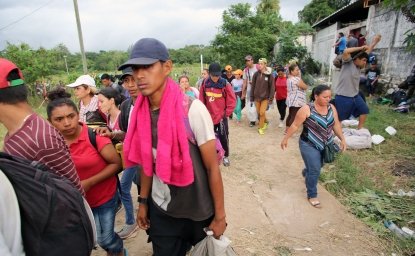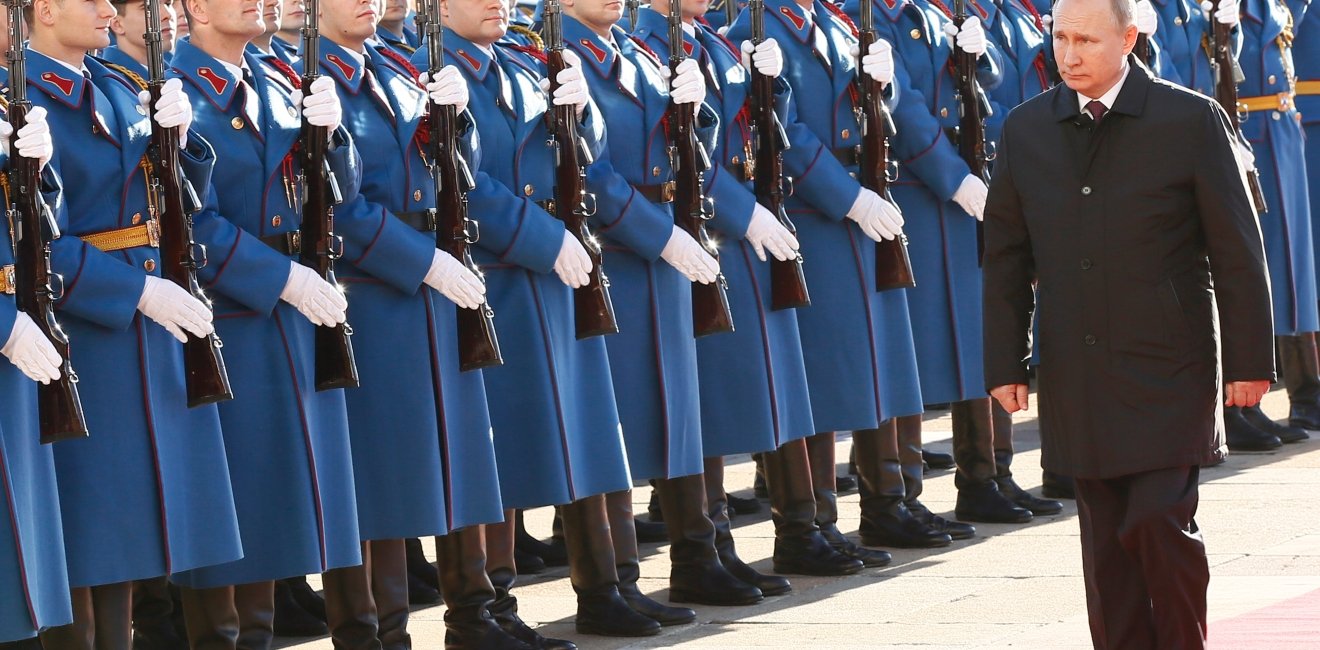
Q: Describe your background and what brought you to the Wilson Center.
My introduction to the post-Soviet region was purely happenstance. At university I was encouraged by a professor to take his Russian language class, which I did simply because it seemed interesting. The next thing I know, I am studying abroad in Russia, moving to Georgia on a Fulbright, and starting a PhD program in political science with a focus on Eurasian politics. Over the past fifteen years, I have conducted research in Russia, Kazakhstan, Kyrgyzstan, and Georgia. After receiving my PhD, I began working at Miami University in Ohio, where I am now the Karen and Adeed Dawisha Assistant Professor of Political Science. At Miami, I have continued my work on the post-Soviet region as part of the Havighurst Center for Russian and Post-Soviet Studies. Through the Havighurst Center I have had amazing opportunities to organize visits by world dignitaries, such as the former president of Kyrgyzstan, Roza Otunbayeva; activists, such as the prominent Russian opposition leader, Leonid Volkov; and scholars, including the occasional Wilson Center alumni. This work has impressed upon me the importance of translating scholarly work to broad audiences and the need to bridge the gap between academia and the policy community. This desire led me to pursue a fellowship at the Wilson Center, where I look forward to contributing to this goal.
Q: What project are you working on at the Center?
At the Wilson Center, I am working on a project entitled “Democratic decline, authoritarian resilience, and individual conceptualization of democracy in the former Soviet Union.” This project starts from the premise that decreasing global support for democracy stems from a mismatch between how democracy is understood by practitioners and how individuals in many countries conceptualize it. Broadly speaking, public attitudes towards democracy may not be based on well-informed or sophisticated understandings of democracy. Even individuals in long-established democracies often lack knowledge of the fundamental components of democracy, and it is an even more obtuse term in societies with little historical experience of democratic governance, restricted access to independent media, and autocratic leaders who redefine or obscure the meaning of democracy to fit their own agenda. This project centers individual narratives and perspectives to better understand how experience under different political systems influence individual conceptualization and support of democracy.
Q: How did you become interested in your current research topic?
My research is inspired by democratic backsliding and the entrenchment of authoritarian regimes around the world. In my current book project, Dialogue with the Dictator: Authoritarian Legitimation and Information Management in Putin’s Russia, I examine how authoritarian regimes create and maintain seemingly-democratic participation opportunities to “mimic” democracy while actually reinforcing the existing order. Rather than relying solely on the classic authoritarian playbook of coercion and cooptation, today’s authoritarian regimes frequently paint themselves and their practices as democratic. While completing research for the book project, one question stuck with me: How does this tendency (of authoritarian regimes presenting themselves as democratic to the public while in reality failing to uphold the core principles of democratic governance) influence ordinary people’s understanding of the concept of democracy? This new research project seeks to answer that question and provide insight into how experience with different regime types conditions individuals’ understanding and conceptualization of democracy.
Q: Why do you believe that your research matters to a wider audience?
For many, the end of the Cold War and the spread of liberal democracy to much of the world appeared to herald a lasting shift toward democratic hegemony. Today that optimism seems premature; the number of authoritarian regimes continues to rise, and many—Russia being key among these—were once established or promising democracies. Elsewhere, such as in Hungary and Poland, there has been substantial democratic backsliding characterized by the undermining of rule of law and the rise of hardened identity politics. What explains why we have seen increasing global democratic breakdown, declining quality and stability of democracy, deepening authoritarianism, and ineffective democracy promotion over the past decade-plus? This question is now at the forefront of policy discussion both in the USA and abroad. My research seeks to shed light onto this question and to provide a more comprehensive and culturally-nuanced investigation of the state of democracy knowledge and perceptions in a region where democracy remains under threat.
Q: What is the most challenging aspect of your research?
Currently, the ethics of conducting research in the middle of a global pandemic is at the forefront of my mind. My research is primarily focused on public attitudes and, as such, requires me to conduct interviews and focus groups and to gather survey data. When the pandemic began in early 2020, my collaborators and I were in the process of collecting interview data with the help of research assistants in Georgia. We immediately put a hold on data collection. The pandemic has presented many new challenges for researchers who rely on fieldwork. My first consideration is always the health and safety of my research team and our interlocutors. As we continue to live and work in the middle of the pandemic, my main challenge has been to reconsider my research scope and data collection strategies, thinking of new ways to examine my research questions and to forward the research in a safe and responsible manner.
Q: What do you hope the impact of your research will be?
Russia’s reemergence as a world power has made it more important than ever to understand this complex country. Russia’s rise to the status of a global power has coincided with the perception of Russia as a threat. But many assumptions about Russia are false, outdated, or misleading. Russia is far from being the monolithic entity that many in the West believe. Rather, the country is made up of multiple competing entities with different beliefs, goals, and perspectives. My research seeks to shed light on Russia’s complexity by centering the lived experiences of ordinary individuals. By providing detailed analysis on the determinants of political attitudes in Russia—as well as the myriad of competing beliefs and views that exist today—I hope to contribute to a more nuanced and measured understanding of this important country.
The opinions expressed in this article are those solely of the authors and do not reflect the views of the Kennan Institute.
Author

Karen and Adeed Dawisha Assistant Professor of Political Science, Miami University; Faculty Associate, Havighurst Center for Russian and Post-Soviet Studies

Kennan Institute
The Kennan Institute is the premier US center for advanced research on Eurasia and the oldest and largest regional program at the Woodrow Wilson International Center for Scholars. The Kennan Institute is committed to improving American understanding of Russia, Ukraine, Central Asia, the South Caucasus, and the surrounding region through research and exchange. Read more

Explore More
Browse Insights & Analysis
Change in the Ballot Box in Africa

You Can’t Deport Your Way Out of the Problem

US Ties Its Hands in Fight Against Organized Crime

